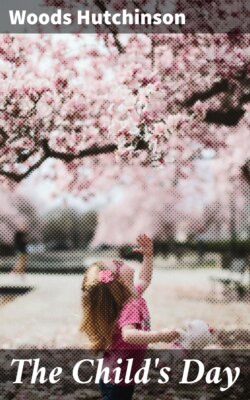Читать книгу The Child's Day - Woods Hutchinson - Страница 3
На сайте Литреса книга снята с продажи.
FOREWORD
ОглавлениеTable of Contents
“If youth only knew, if old age only could!” lamented the philosopher. What is the use, say some, of putting ideas about disease into children’s heads and making them fussy about their health and anxious before their time?
Precisely because ideas about disease are far less hurtful than disease itself, and because the period for richest returns from sensible living is childhood—and the earlier the better.
It is abundantly worth while to teach a child how to protect his health and build up his strength; too many of us only begin to take thought of our health when it is too late to do us much good. Almost everything is possible in childhood. The heaviest life handicaps can be fed and played and trained out of existence in a child. Even the most rudimentary knowledge, the simplest and crudest of precautions, in childhood may make all the difference between misery and happiness, success and failure in life.
Our greatest asset for healthful living is that most of the unspoiled instincts, the primitive likes and dislikes, of the child point in the right direction. There is no need to tell children to eat, to play, to sleep, to swim; all that is needed is to point out why they like to do these things, where to stop, what risks to avoid. The simplest and most natural method of doing this has seemed to be that of a sketch of the usual course and activities of a Child’s Day, with a running commentary of explanation, and such outlines of our bodily structure and needs as are required to make clear why such and such a course is advisable and such another inadvisable. The greatest problem has been how to reach and hold the interest of the child; and the lion’s share of such success as may have been achieved in this regard is due to the coöperation of my sister, Professor Mabel Hutchinson Douglas of Whittier College, California.
The Author.
